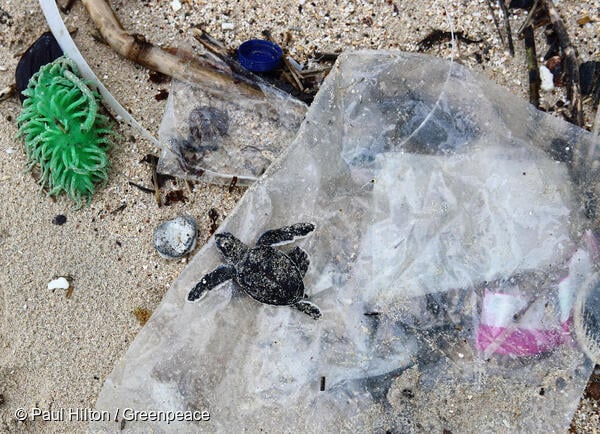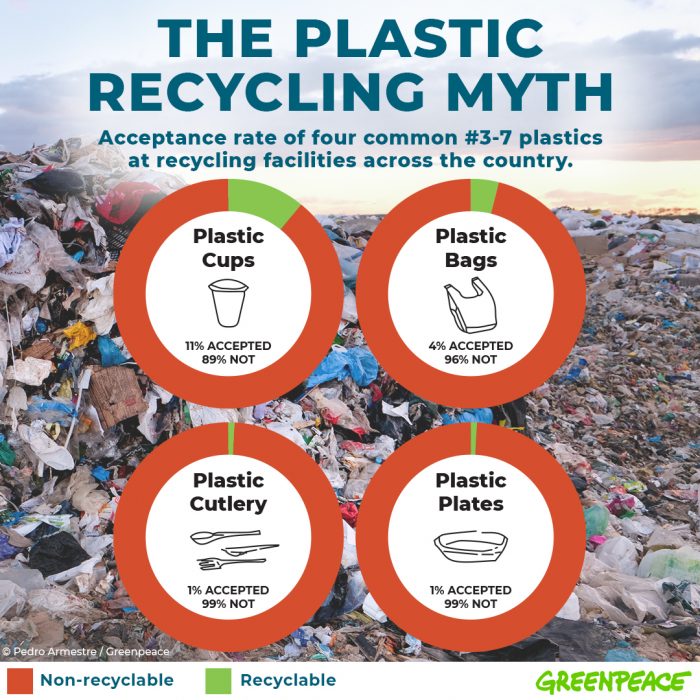In a new report, Greenpeace USA shows how the American Chemistry Council is using the fantasy of chemical recycling to mislead investors, governments, and the public into believing that we can recycle our way out of the plastic pollution crisis.

Despite decades of deceptive industry marketing, we know we can’t recycle our way out of the plastic pollution crisis. But the companies making and selling plastic—and their trade association surrogate, the American Chemistry Council—aren’t giving up. Instead, they’re doubling down to mislead investors, governments, and the public into believing we can.
Here’s how they’re using the fantasy of chemical recycling to do it.



